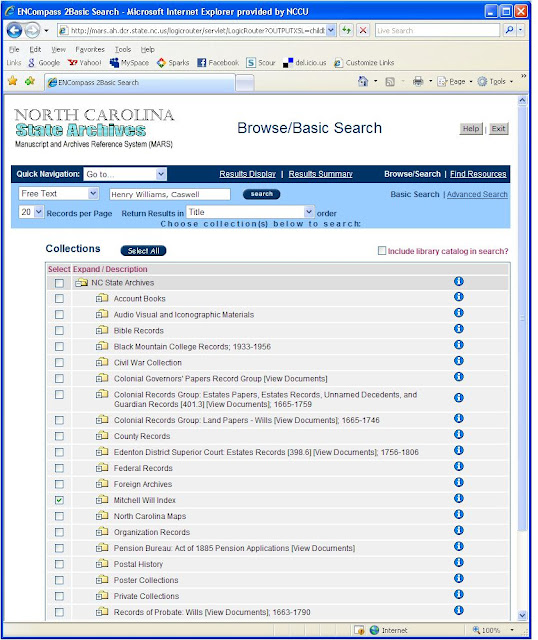I love going through boxes of "old stuff" as much as any other genealogist out there. And I could spend hours doing so, especially if I am looking for that elusive brickwall-busting document or photo. However, I am also aware of the importance of being able to go back and locate an item I thought was interesting without having to rummage through the entire box's contents all over again. This is why I have decided to inventory and subsequently preserve, or in more practical terms "file" these items away for easy access and with little risk of degradation or damage.
Although I was trained in the arrangement and description of archival material while obtaining my Library of Science Master's Degree, I'm not going to go THAT FAR. I do not intend to preserve these materials for the next 150 years. Let the actual archives take care of that when I'm gone (because of course I'm going to donate ALL of my genealogical materials to the Archives before I die!) What I do intend to do, however, is to inventory the boxes' contents, organize (and describe) the materials, and arrange them into a manner in which they can be retrieved and shared as necessary.
There is one aspect of training that I will adhere to called RESPECT des FONDS. You may recognize the two main components of this pricinple: PROVENANCE and ORIGINAL ORDER.[1]
- PROVENANCE: refers to the individual, family, or organization that created items in a collection
- ORIGINAL ORDER: refers to the order in which items in a collection were organized by their creator
An example of why this is important was evident in some of the photos I quickly looked through prior to starting the inventory process... There was a small box about 3x5 that contained photos of my great-grandmother and her school friends, her siblings, her aunts and uncles. Some of the photos had writing on them. The photos of my great-grandmother were labeled "Louise" because that was her name. The photos of my great-grandmother and her mother were labeled "Me and Louise." Do you know what this box of photos was, but more importantly, who they belonged to? They belonged to my 2nd great-grandmother, Eva Benson! I mean it's pretty exciting to have photos of my 2nd great-grandparents, but even more exciting that my great-grandmother had a little something that was her mother's. Her mother did not live with them. In fact, she lived in Oklahoma and she had 7 children and umteen grandchildren and she visited every single one of them. My Benson cousins in Oklahoma have a ton of photos of my 2nd great-grandmother and I'm sure they have all of her possessions and personal items. And now I do too.
I feel that it is important to identify these photos as those having belonged to my 2nd great-grandmother - they were collected by her; they were written on by her; they were important to her. I therefore want to keep these items separate from my great-grandmother Louise's personal items. They will probably get their own photo box. In this manner I am preserving the provenance of the collection by ensuring that the materials that belonged to my 2nd great-grandmother are kept separate from those belonging to my great-grandmother.
I will also try to keep the original order of the things as I find them. I am not sure if they are in the original order that their creators initiated; but the least I can do is keep them in the order that I found them in. This can be important if and when I run across a photo that is not labeled. Sometimes, the photos it is grouped with can be helpful in identifying the unlabeled and unidentified photo.
Here is my bulleted list of goals for this project:
1. Inventory
- Who, What, When, & Where?
- Lined notebook
- Materials bundled with rubber bands and post it notes
- Materials bundled in envelops
- Stored in numbered photo boxes
2. Organize
- Photo boxes (stage 1)
- File folders (stage 2?)
- Letters, Documents, Bills, Photos, Memorabilia, etc
3. Preserve
- Scan Items in Collection
- How many file folders or boxes are required?
4. Extract Genealogical Data
- Marriage, Death, Birth Certificates
- Photos, etc
I hope to do a little with these boxes each week and report back to you on what I found, what I did with it, and what I learned from it.
Sources:
Sources:
[1] Society of American Archivists, Website, Glossary, www2.archivists.org, accessed 17 January 2015.
[2] Image of Provenance Text Box created by the author, Ginger R. Smith, 21 January 2015. Feel free to use for noncommercial purposes with attribution back to this website.
[2] Image of Provenance Text Box created by the author, Ginger R. Smith, 21 January 2015. Feel free to use for noncommercial purposes with attribution back to this website.



































